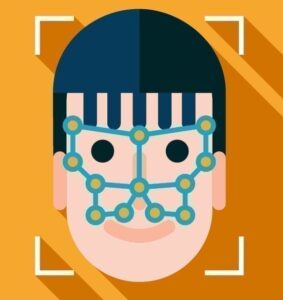The Japanese government is planning to use facial recognition to support contact tracing initiatives and slow the spread of COVID-19 at large events. That includes next year’s Tokyo Olympics and Paralympics, which were pushed back from 2020 to 2021 due to the outbreak of the virus.

The report comes courtesy of The Japan Times, which indicated that the plans are currently in the draft phase but will be disclosed to the public relatively soon. The government will then conduct tests for individual agencies in the weeks and months that follow.
The contact tracing program will leverage surveillance cameras equipped with facial recognition software, which will allow public health authorities to track the movements of someone who later tests positive for COVID-19. They will then be able to identify anyone who came into contact with that person, and who consequently may have been exposed to the disease.
Facial recognition could also be used for access control, and to limit the number of athletes and staff in a venue at any given time. The contact tracing system would be deployed in conjunction with a more robust testing program designed to increase the government’s capacity to conduct saliva-based polymerase chain reaction (PCR) tests. The program would allow people to go to a drug store to send a saliva sample to a testing facility, while the tests themselves would check for both influenza and COVID-19.
While the contact tracing program is ambitious, much of the infrastructure needed to run it may already be in place. Japan first announced that it would be installing a face-based security system for the Tokyo Games back in January of 2018, and authorities then asked NEC to implement that system using its NeoFace solution later in the year.
Atos was contracted to run the access control system as the International Olympic Committee’s Worldwide IT Partner, while Intel provided Intel Core i5 processors to power the technology.
Source: The Japan Times
–
September 25, 2020 – by Eric Weiss








Follow Us